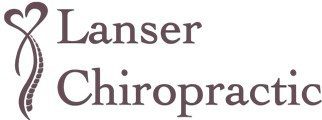Posts Tagged ‘chiropractic Sunnyvale CA’
Welcome to Lanser Chiropractic's chiropractic Sunnyvale CA Archive. Here you can learn more about Lanser Chiropractic, Chiropractic, and Dr. Wendy Lanser D.C., today's choice for Chiropractors in Sunnyvale, CA. Read Dr. Wendy Lanser D.C.'s Chiropractic chiropractic Sunnyvale CA for the health of it.
We look forward to serving you! Call - 408-245-5454.
by Dr. Wendy Lanser D.C. | Aug 21, 2014 | Health Articles

Very often patients present in our office with what they have described as a "slipped disc". As with the fairy tale of slipped discs they are also searching for the magic wand to wave and fix the severe pain that is attributed to this "slipped" disc. Thank goodness we are trained experts in helping you not...
Read More >>
by Dr. Wendy Lanser D.C. | Aug 5, 2014 | Health Articles

Very soon Chiropractic will be celebrating another birthday. For over a century of success Chiropractic has been helping people of all ages regain and retain their health. Chiropractic is now the health care of choice for millions of parents and their children throughout the world. We are proud to do our part as our community’s...
Read More >>
by Dr. Wendy Lanser D.C. | Jul 31, 2014 | Health Articles

With today's hectic lifestyles our stress and pain overload is up and our time and resources are limited for solutions. For solutions many of us head to the internet to search for these solutions. Unfortunately there is too much information on the information highway which allows us to become paralyzed with confusion. Here are a...
Read More >>
by Dr. Wendy Lanser D.C. | Jul 10, 2014 | Health Articles

Our Team this summer would like to help you better understand a chronic inflammatory response and explain how it manifests in the body based on two triggers: genetics and lifestyle. Our family history can provide us with a sneak peak of which health issues we may be at increased risks for developing. However, our lifestyle...
Read More >>
by Dr. Wendy Lanser D.C. | Jul 8, 2014 | Health Articles

Finally summer is here! But with the great weather that arrived late this year so did the massive pollen levels that are causing an historic spike in cases of seasonal allergy, also known as allergic rhinitis. Bad news for those of us who anxiously awaited to emerge from our winter cocoons and enjoy the great outdoors....
Read More >>





